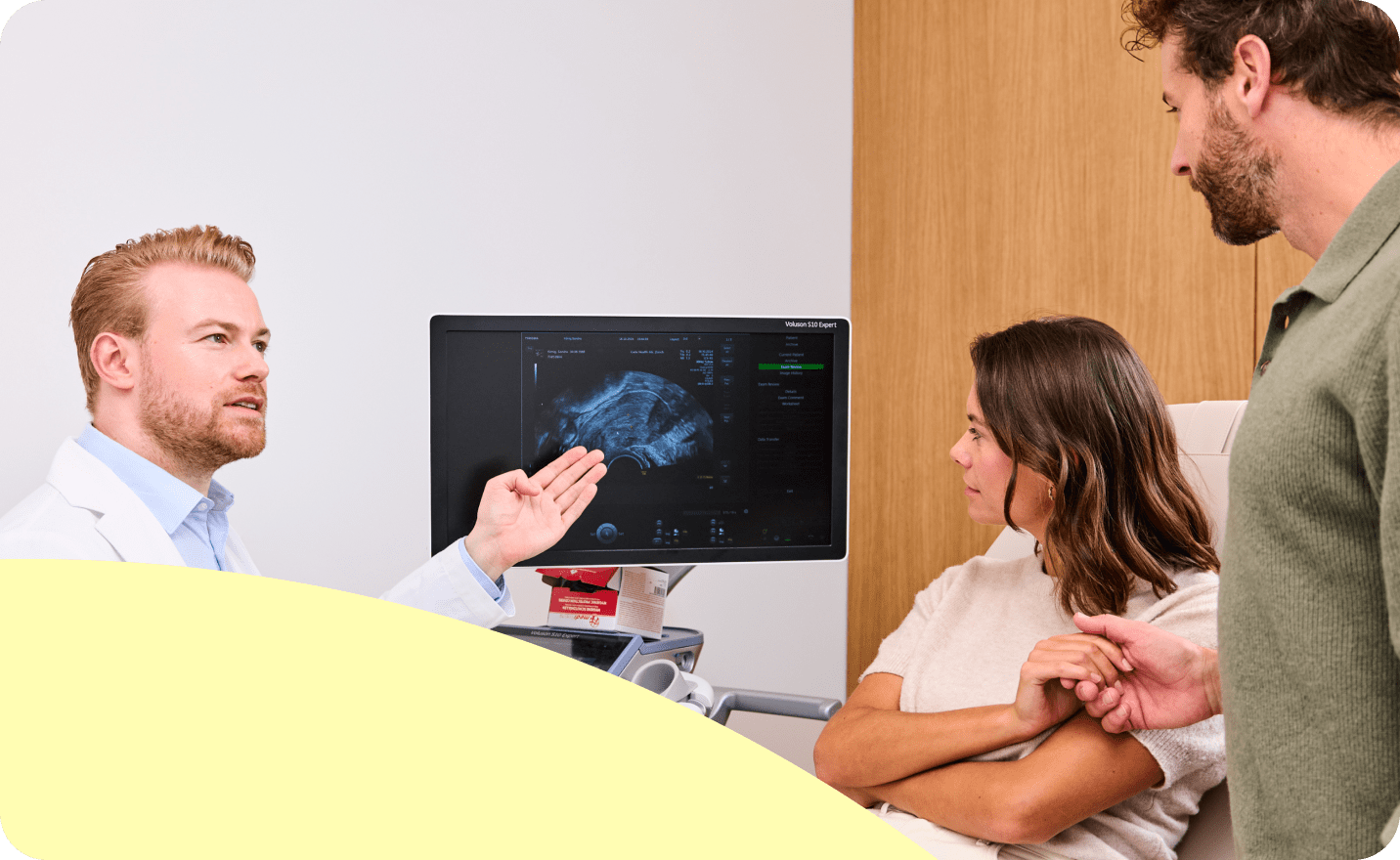Is endometriosis impacting your life and fertility? Although it may be harder, women with endometriosis can get pregnant. Here, we offer some natural approaches to improving the condition and consequently increasing your chances of getting pregnant.
First steps to take to improve the condition and your fertility
Is endometriosis impacting your life and fertility? Although it may be harder, women with endometriosis can get pregnant. Here, we offer some natural approaches to improving the condition and consequently increasing your chances of getting pregnant.
What is endometriosis?
Endometriosis is a medical condition in which tissue similar to the lining of the uterus (endometrium) is found outside the uterus, usually in the pelvic region (also called the peritoneal cavity). In extremely rare cases, this tissue is in other parts of the body, such as the lungs, liver, and spleen. Endometriosis is well-described as a complex chronic inflammatory condition. This means that it involves inflammation that persists for an extended period of time.
The tissue can attach to the ovaries, fallopian tubes, bladder, bowel, and peritoneal layer (the tissue lining the abdominal cavity), where it establishes a blood supply and grows to form lesions or implants. Adhesions, which are scar tissue caused by these lesions, also develop between the reproductive organs and surrounding tissues.
These adhesions and implants cause chronic inflammation and pain. This is heightened further in response to the hormonal fluctuations during the menstrual cycle. This is principally because the implanted endometrial-like tissue still reacts as if it is in the uterus, where it is highly sensitive to hormones.
Infertility is a common symptom in women with endometriosis. Endometriosis is also associated with more complications during conception and pregnancy, such as tubal pregnancies, miscarriages, and preterm births. Understanding the condition and what you can do to improve it is key to increasing your chances of conceiving and having a healthy pregnancy. This article gives you insight into lifestyle interventions you could try.
Who does it affect?
You’re not alone! It is estimated that 6–10% of women of reproductive age suffer from endometriosis. However, this estimation could be low, as diagnosis and access to adequate healthcare is limited for many women around the world. While it most commonly affects women between 30–40 years of age, it can appear as early as the beginning of menstruation.
It is also reported that about one-third of women with endometriosis will experience infertility, which is almost twice the rate for women who do not have the condition. One recent study also showed that endometriosis is associated with additional chronic health conditions (also called chronic comorbidities). This is also related to a higher use of healthcare services, pain medications, and antidepressants.
Endometriosis-related infertility
This may be a term that you’ve already come across. Infertility is the most common complication of endometriosis. There are multiple reasons for this:
- Pain during or after intercourse: pain during sex is a common complaint for women with endometriosis. If you are trying to get pregnant, but pain is hindering you from engaging in penetrative intercourse, then conceiving is unlikely.
- Pelvic adhesions: the endometrial cells that migrate can cause scar tissue (adhesions), which can grow between organs and tissues, causing significant pain. These may occur around the uterus, ovaries, fallopian tubes, bladder, ureter and bowel and could affect conception by impairing egg release from the ovary or blocking the fallopian tubes and preventing the sperm from meeting the egg.
- Altered ovulation and oocyte production: the inflammatory effects of cysts within the ovary (endometriomas) can affect both egg production and ovulation, as well as ovarian reserve.
- Hormonal imbalances affecting the lining of the uterus and egg implantation.
If your fertility is being affected by endometriosis, then it’s time to speak to your gynaecologist or fertility specialist.
Treatment options: natural lifestyle interventions
Currently, there’s no specific cure for endometriosis, and managing the condition is the priority. Here are some effective ways to try to improve the condition and your fertility before having to venture into medicated or surgical procedures:
Talk to your doctor. If you are regularly suffering from painful periods, have not been able to fall pregnant after having regular unprotected sex for 6–12 months or are experiencing any of the other symptom s of endometriosis, then speak with your gynaecologist or fertility expert. They can help by performing an investigative examination to fully diagnose the condition, and explaining medical treatment options and other ways to improve the condition.
Track your menstrual cycle. A key symptom of the condition is irregular periods. Having unprotected sex during your fertile window is key to conceiving. But if you’re unsure when you’re ovulating, this will reduce your chances of getting pregnant. Keeping a diary, using an app, making notes in your calendar—whatever works for you—can help identify the menstrual stages you are in. In addition, add in all your symptoms, however big or small. You can share this information with your fertility specialist to help them better understand your cycle and condition.
Cycle syncing. When tracking your cycle, you can try to follow the cycle syncing technique proposed by Alisa Vetti in her book WomanCode. Syncing your cycle with what you eat and the exercises you do during different stages of your cycle may also help to improve the condition.
Adjusting your diet. Generally, we’re all aware that a healthy diet can have wondrous effects on the body. Despite the enormous amount of literature on the topic, studies to clarify the role of diet on endometriosis severity and progression are inconsistent and specific guidelines are lacking due to this variability, so caution should be taken and expert advice sought when following a specific diet. Some studies suggest that high consumption of red meat, coffee and trans fats can worsen endometriosis. So, what to eat? Some recent research proposes to include the following, due to their anti-inflammatory and/or antioxidant effects:
- polyphenols, found in fruits and vegetables
- resveratrol, found in foods such as red grapes, berries, and nuts
- vitamin C, found in citrus fruits, kiwis, broccoli, and other foods
- spices and herbs such as thyme, oregano, basil, rosemary, ginger, peppers, capsaicin, and curcumin
- white or green tea
- fatty fish and seeds/vegetables high in Omega 3 or 6
In addition, the following alternative diets may be appropriate for some individuals:
- a gluten-free diet, to reduce immunoinflammatory response, specifically in women with endometriosis and gastrointestinal problems.
- a low-Nickel diet, excluding foods such as shallots, cabbages, eggs, chicken, berries, and garlic. A high-nickel diet can cause allergic contact mucositis, which is sometimes seen in patients with endometriosis.
- a low-FODMAP diet. FODMAP stands for fermented oligo-, di-, monosaccharides, and polyols, which are found in various fruit, vegetables, cereals, daily products. This can help to alleviate gastrointestinal issues.
- The Mediterranean diet, consisting of fresh vegetables, fruit, white meat, fish, soy products, and cold-pressed oils.
If you have endometriosis, ask your doctor about which diet might benefit you and your symptoms.
Exercise. While various studies have looked at the benefits of exercise on endometriosis, no specific set of guidelines have emerged. Systematic reviews show that many interventional programs for endometriosis include flexibility and strength training, cardiovascular fitness, and yoga, which are often performed one to four times per week. Regular exercise can help improve mood, maintain a healthy weight, reduce pain and so much more, so doing as little as 30 minutes of regular exercise per day can help.
Body weight. Interestingly, current evidence shows an inverse correlation with endometriosis and body weight, meaning the incidence of endometriosis is suggested to be higher in women who have a low BMI or are underweight. The exact reason for these findings is unknown, but could relate to chronic pain, nausea and diarrhea promoting weight loss or loss of appetite. However, that doesn’t mean overweight or obese women are protected from the condition. In fact, studies show that obese women may develop more severe endometriosis. Given this information, aiming to maintain a healthy body weight and BMI (>18.5 and<25 kg/m2) would be ideal.
Smoking, alcohol and addictive drugs. Studies are somewhat conflicting, as direct links with smoking, alcohol and drugs have not been established in relation to increased risk or severity of endometriosis. As we know, all these lifestyle habits can lead to dependence and can have detrimental effects on various bodily functions and trigger diseases. Therefore, it is advisable to avoid smoking, high alcohol consumption and drug-taking when trying to follow a healthy lifestyle, improve symptoms and fall pregnant.
Reduce stress. Chronic stress can have dramatic effects on your body, especially your immune system and hormonal balance. As endometriosis is a chronic inflammatory condition, reducing your stress levels can help improve symptoms and regulate the menstrual cycle. Identify your daily stressors, such as work pressure or family commitments, and try to plan in some exercise, stress-relieving techniques or time doing activities you enjoy to help alleviate stress.
Alternative therapies. Traditional Chinese medicine and Ayurveda are the two most prominent holistic approaches that focus on creating a foundation of balance for your health, and understanding your body type and how it can be unbalanced. Acupuncture, herbal medicines, nutrition and lifestyle guidance are among the alternative therapies that may help to optimise health. For example, acupuncture has been shown to help alleviate pain in women with endometriosis. In one Brazilian clinical trial, researchers found an improvement in chronic pelvic pain and dyspareunia two months after acupuncture treatment and improved quality of life scores in the experimental group. Although data in other systematic reviews are inconsistent, acupuncture is a low-risk and inexpensive treatment option that could improve symptoms, specifically pain and dyspareunia. Ensure you see a qualified acupuncturist or Chinese medicine specialist.
Environmental factors. Endocrine-disrupting chemicals are any chemicals in our environment that through food, water, inspired air or skin enter the body and can influence normal hormonal action. These chemicals do not specifically cause endometriosis, but could increase the risk or impact fertility. Benzophenones, parabens, dioxins, polychlorinated biphenyls (PCBs), bisphenol A (BPA) and phthalates are some of the chemicals that have been investigated as risk factors for endometriosis. Therefore, eliminating certain harmful chemicals in your environment could help improve endometriosis symptoms. Check your cosmetics or skin products, and the plastic products you use on a daily basis for BPA, as well as being aware of any toxic pollutants in your surroundings.
Psychological help. Suffering from any condition or disease can lead to psychological difficulties. Fertility issues can add more stress and strain for you and your partnership. Therefore, taking control of your mental health is key for your journey. Some women may experience depression and anxiety. So, speaking with a psychologist or therapist who can guide you on techniques such as mindfulness, meditation, and cognitive behavioural therapy, can help you gain control of the condition and your mental health. Additionally, having a good support network around you, whether it consists of friends, family or a support group specifically addressing fertility issues, can be helpful.
Over-the-counter drugs. To help relieve the pain associated with the condition, use over-the-counter pain relief and/or anti-inflammatory medications.
What if that doesn’t work?
If all the above have been tried and endometriosis-associated infertility is still affecting you, your fertility expert will explain other fertility treatments to you, such as:
- Fertility drugs
- Intrauterine insemination (IUI)
- In vitro fertilisation (IVF)
Takeaway
Endometriosis can be a severe condition causing pain, discomfort and fertility issues. There are natural ways to help alleviate the symptoms, but getting professional advice from your doctor or fertility specialist can kick-start your journey to improving the condition and getting pregnant.
At Cada, we have specialised doctors and healthcare professionals who can discuss endometriosis and offer compassionate advice and guidance. Get in touch with us and reserve your spot for a free consultation today.







